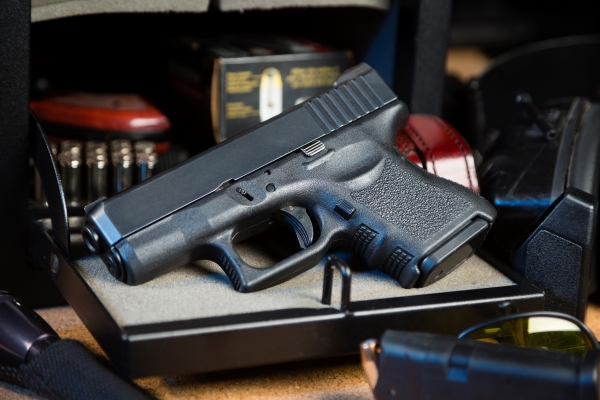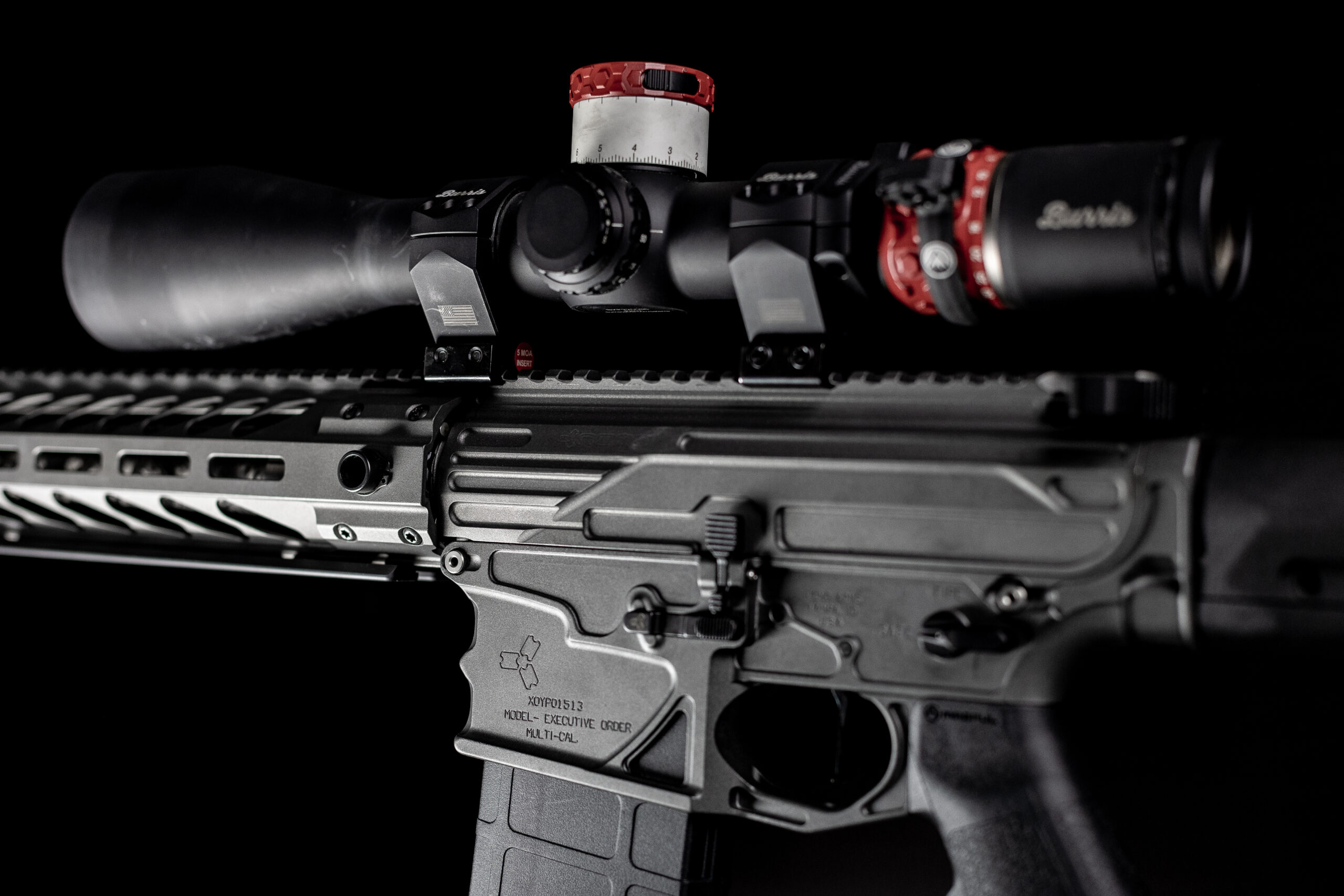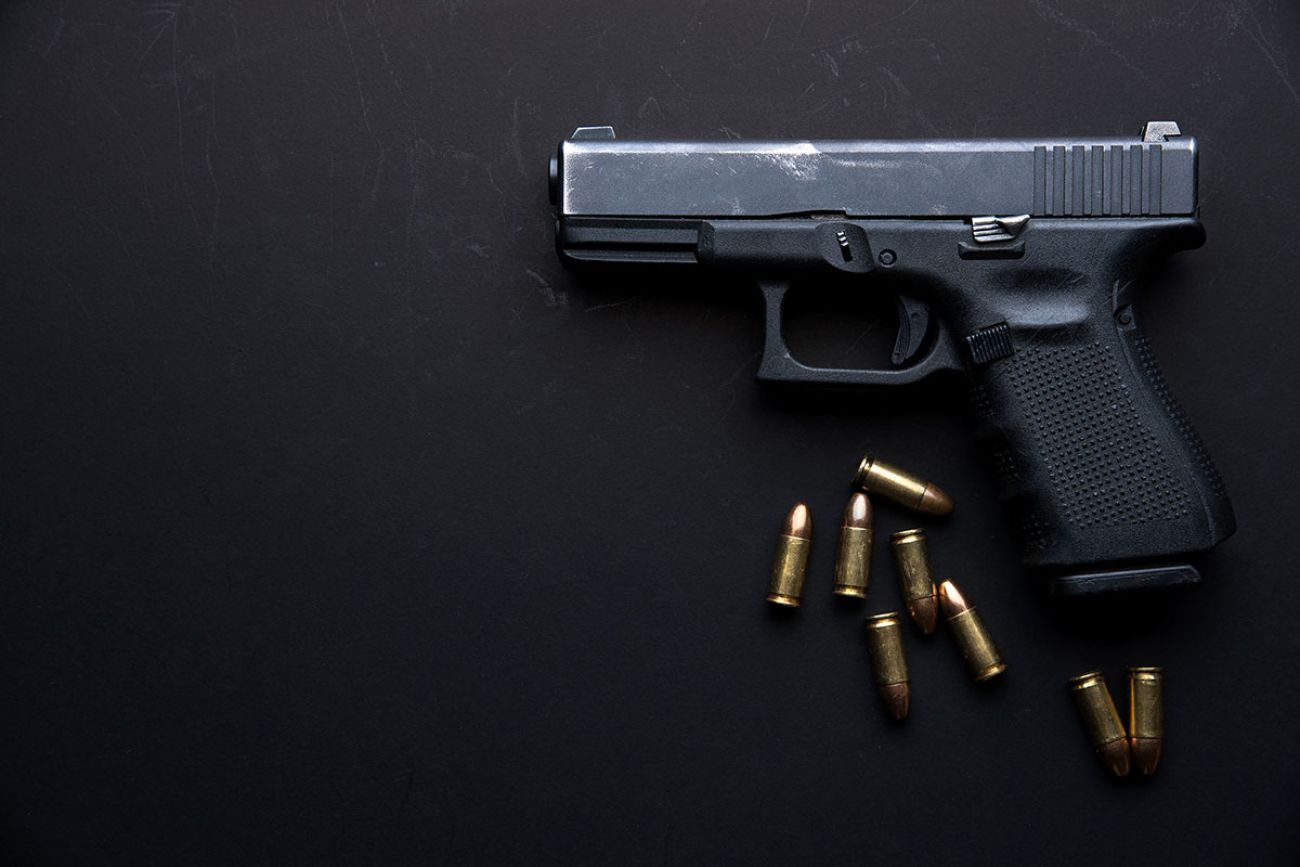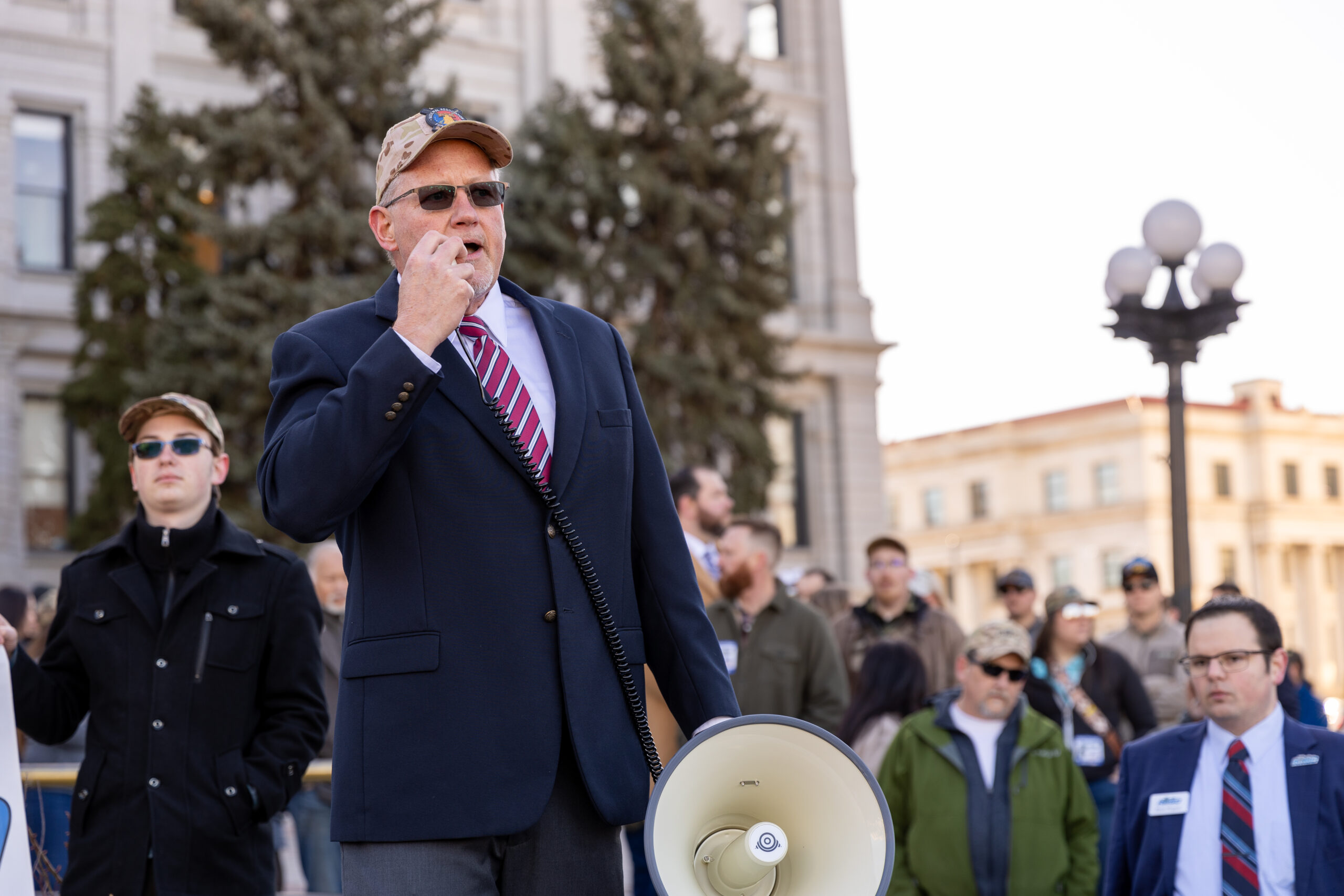Red Flag Gun Confiscation
- Including S.7, S.506 and similar legislation NAGR’s Position: Strongly Oppose
“Red Flag” gun confiscation bills call for legally owned firearms to be forcibly confiscated from law-abiding Americans without due process, based on unsubstantiated accusations from disgruntled family members, neighbors, co-workers, and/or current or ex-romantic partners, or roommates. Sometimes branded as “Extreme Risk Protection Orders” (ERPOs) or “Gun Violence Restraining Orders,” (GVRO’s) these laws rely on the issuing of ex-parte (one-sided) orders authorizing law enforcement, including SWAT teams, to immediately seize firearms from the subject of the order without notification or right to an attorney. In other words: Gun Confiscation without due process. In the 116th Congress, S. 7, by U.S. Senator Marco Rubio, authorizes a federal grant program to fund state-level adoption of “Red Flag” gun confiscation laws. S.S06 by Senator Dianne Feinstein authorizes a grant program as well as a federally-enforceable “Red Flag” gun confiscation law. In the wake of the El Paso and Dayton attacks, Sen. Lindsey Graham and Sen. Richard Blumenthal have taken the lead on re-drafting their “Red Flag” legislation (S.2521) from the 115th Congress. Currently, 17 states and the District of Columbia have “Red Flag” laws on the books. None of these state’s laws respect due process or the presumption of innocence. Instead, the laws entirely neglect due process altogether, a true “take the guns first” form of gun confiscation. The National Association for Gun Rights expects all pro-gun members of the U.S. House and Senate to join us in opposing this type of gun confiscation.
Red Flag Gun Confiscation
- Including S.7, S.506 and similar legislation NAGR’s Position: Strongly Oppose
“Red Flag” gun confiscation bills call for legally owned firearms to be forcibly confiscated from law-abiding Americans without due process, based on unsubstantiated accusations from disgruntled family members, neighbors, co-workers, and/or current or ex-romantic partners, or roommates. Sometimes branded as “Extreme Risk Protection Orders” (ERPOs) or “Gun Violence Restraining Orders,” (GVRO’s) these laws rely on the issuing of ex-parte (one-sided) orders authorizing law enforcement, including SWAT teams, to immediately seize firearms from the subject of the order without notification or right to an attorney. In other words: Gun Confiscation without due process. In the 116th Congress, S. 7, by U.S. Senator Marco Rubio, authorizes a federal grant program to fund state-level adoption of “Red Flag” gun confiscation laws. S.S06 by Senator Dianne Feinstein authorizes a grant program as well as a federally-enforceable “Red Flag” gun confiscation law. In the wake of the El Paso and Dayton attacks, Sen. Lindsey Graham and Sen. Richard Blumenthal have taken the lead on re-drafting their “Red Flag” legislation (S.2521) from the 115th Congress. Currently, 17 states and the District of Columbia have “Red Flag” laws on the books. None of these state’s laws respect due process or the presumption of innocence. Instead, the laws entirely neglect due process altogether, a true “take the guns first” form of gun confiscation. The National Association for Gun Rights expects all pro-gun members of the U.S. House and Senate to join us in opposing this type of gun confiscation.

Top 5 Reasons to Oppose Federal “Red Flag” Gun Confiscation
So-called “Red Flag” laws (sometimes referred to as Extreme Risk Protection Orders or Gun Violence Restraining Orders) all mean the same thing. Gun confiscation without due process of law. In one fell swoop, law-abiding citizens have their Second and Fourth Amendment rights violated all at once, and must pay tens of thousands of dollars to get their firearms back. All based on a mere accusation. And in the current political climate, where advocating for the violation of constitutional rights earns lawmakers points with the media, passing a national “Red Flag” Gun Confiscation Grant Program has become the trendy gun control measure in Washington, D.C. With slick-talking politicians selling such laws as “common sense,” it can be difficult for pro-gun Americans to see past their deceptive rhetoric. That’s why the National Association for Gun Rights created this list of the Top Five Reasons to Oppose “Red Flag” Gun Confiscation.
1
Zero Due Process
“Red Flag” Gun Confiscation laws assume the accused are guilty until proven innocent. Not a single one of the 17 states with “Red Flag” laws include the right to due process. In fact, it is impossible to confiscate guns first and provide due process. Further, under “Red Flag” the burden of proof is much lower to take the guns than to get them back. So the next time you hear a politician advocating these Orwellian laws you will be able to see past the smokescreen and realize they are touting gun confiscation — plain and simple. As always the National Association for Gun Rights will continue to call out every politician who endorses gun confiscation or any anti-gun legislation.
2
Lives Are At Stake
Gun Confiscation laws are dangerous for law enforcement and gun owners alike. “Red Flag” Gun Confiscation laws put rank and file law enforcement officers and everyday citizens in danger, as evidenced by a Maryland man who was shot and killed by a SWAT team in his own home during an unannounced raid at 5 o’clock in the morning. If the federal government bribes state governments and police agencies to start seizing people’s guns, more officers and citizens will be put in unnecessary danger.
3
Ripe For Abuse
“Red Flag” laws specifically target law-abiding citizens who have not committed a crime, in other words, it’s an unconstitutional “pre-crime” program similar to what you’d expect to see in Communist China. Abusive partners and criminals will use “Red Flag” laws to disarm their partners and neighbors. Even worse, most “Red Flag” laws do not provide penalties for false accusations, and the ones that do are basically a slap on the wrist.
4
Taking Guns And Only Guns
When it comes to “Red Flag” Gun Confiscation, it is clear the goal is not to keep dangerous people from committing atrocities, but only to confiscate guns. States with “Red Flag” laws, such as Colorado, aren’t confiscating knives, prescription medicine, cars, or propane tanks from individuals who get hit with a “Red Flag” order. Confiscating lawfully-owned guns is the only goal. Furthermore, all 50 states have constitutional procedures to separate disturbed, violent people from guns through involuntary commitments.
5
Legalized Bribery
At the federal level, many powerful D.C. politicians are advocating the use of grants to bribe state governments into doing their dirty work by passing state-level gun confiscation laws. If a state bows to the whims of the federal government and passes a “Red Flag” law which uses ex-parte hearings (i.e. secret court proceedings) to strip a person of their Second Amendment rights, the federal government will then dole out millions of dollars to state coffers so they can enforce the law and disarm innocent gun owners. This means every tax-paying American will have some portion of their tax dollars used to pay off states which implement gun confiscation programs. Even worse, funds would be withheld from pro-gun states which refuse to force this legislation on their citizens.
"Red Flag”: Detailed Analysis
Extreme Risk Protection Order (ERPO)
All of the currently proposed federal “Red Flag” gun confiscation bills would provide grants to states that allow a court to issue a so-called “Extreme Risk Protection Order (ERPO)” which involves a court entering a secret order, banning someone from possessing firearms or ammunition, and confiscating the firearms and ammunition that an individual already lawfully owns.
The order and seizure warrant may be issued ex-parte (in other words, before any notice at all to the subject of the order). This is happening in multiple states, including more than 100 warrants in Maryland alone, putting the lives of local residents and police officers in danger.
Such legislation contemplates that the persons who initiate the request for this order are family and/or ex-lovers of the person whose firearms are to be seized. For many people, those two categories are going to be full of people who now dislike them and would be motivated to seek revenge by lying to the courts.
The legislation authorizes accompanying seizure warrants, which are issued without any notice to the subject of the order. You find out when the SWAT team comes to your door to “collect” your guns. The order may be issued using the very weak “preponderance of the evidence” (basically a tipping of the scales: Sl%) standard of evidence.
The court could report these orders to the FBI, barring the individual from being able to pass a NICS check to purchase a firearm. Additionally, law enforcement would be obligated to confiscate firearms the individual legally possesses.
Upon issuing the order, the subject of the order potentially becomes in violation of it without their knowledge.
Only after seizure of the firearms, and entry of the order, can the subject of the order challenge the issuance and beg for their rights and their guns back. This is not due process.

Red Flag Laws
Under most “Red Flag” laws, the court is expected to hold a hearing within 30 days of the entry of the initial order, after notice has been provided to the subject of the order. At the hearing, the State must show “clear and convincing evidence” that the person poses a “significant risk” to themselves or to another person. This is a higher legal standard than the initial order.
Further, any violation of these orders is a separate crime. So even if a respondent is innocent of the underlying allegations that inspired the “Red Flag” order, violation of the order pending a hearing could result in criminal charges, even if it’s necessary for self-defense purposes.
Under such legislation, a court considering an ERPO or the ex-parte initial order can rely solely on written statements or possibly telephone statements, depriving the person whose rights are being adjudicated the right to confront the witnesses against him. Such legislation even says that only the written statement, which is the basis for the initial ex parte order, has to be under oath!
Written statements justifying the ERPO itself need not be under oath. Due process includes a number of ideas that are fundamental to justice in the USA. The right to confront witnesses against you is essential to due process.
In most states, there is no recourse for the victims or punishment of the perpetrators of a falsely filed “Red Flag” complaint. Case law suggests even the addition of such a provision would be rarely enforced.
Firearms belonging to innocent third parties besides the subject of the order, such as household family members, can also be seized if the police think the subject of the order can access them.
Under such legislation, family members who oppose the Second Amendment could use something as simple as a pro-gun social media post to assert that a family member should have their gun rights stripped and their firearms confiscated.

Potential Abuse and Consequences of Red Flag Legislation
Under such legislation, disgruntled current or former roommates would also be able to initiate the gun confiscation process.
Individuals can be denied their right to self-defense based on any number of emotionally-charged personal disputes, where no crime is committed and no probable cause exists that a crime might be committed. In the most concerning scenario, violent partners or criminals can abuse “Red Flag” orders by filing one against their victim.
Once an ERPO is issued, the subject of the order may request one hearing, after the fact, to have the order rescinded before it expires on its own terms. This has been limited to a single hearing, where if the subject loses, they may not request a new hearing, even if new evidence becomes available or if their life circumstances no longer warrant such a prohibition.
Under most versions of this legislation, these orders can be renewed indefinitely, barring the subject from purchasing a firearm (such as one year at a time) and having their guns returned to them (such as three years at a time).
This legislation does not provide for what will happen to confiscated firearms if they are not returned to the owner.
These proposals say state law does not have to allow the owner to arrange for transfer of the confiscated firearms and ammunition to a dealer for sale. Will the firearms be destroyed, resold, or otherwise disposed? Will the accused be compensated for the value of the property that is no longer theirs?
In practice, local governments are charging people thousands of dollars to store guns that are confiscated, including hefty fees.
Further, immense legal fees are associated with defending a case like this. According to law professor Donald Kilmer “Experienced counsel to defend you in a “due process” hearing will run about $15,000 in fees. If you lose and want to appeal, expect to spend another $25,000 to $100,000 in fees and costs. And even with all of that, you might still lose. “

The Impact of "Red Flag" Laws on Second Amendment Rights
In other words, by mere “preponderance of the evidence” so-called “Red Flag” laws will strip a constitutional right from accused Americans without them ever having a day in court, and it will cost them tens of thousands of dollars to successfully convince a judge to overturn an order already set by another judge. The deck is stacked. Guilty until proven innocent.
“Red Flag” laws are an indefinite suspension of Second Amendment Rights, which, for some, will amount to a lifetime gun ban.
Bottom Line: A national “Red Flag” law OR grant program will violate law-abiding Americans due process and Second Amendment rights.
The National Association for Gun Rights will score any vote or legislative action to advance any “Red Flag” law, including a grant program, as an anti-gun action akin to the actions of King George Ill prior to the American Revolution.

Join Our Battle To Protect The Second Amendment
The National Association for Gun Rights is made up of 4.5 million grassroots activists just like you. Become a member of the nation’s largest no-compromise gun rights organization.
